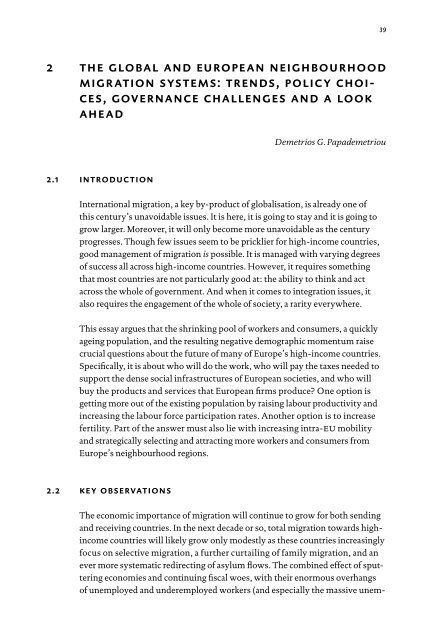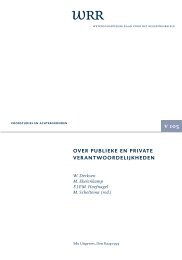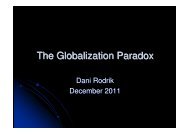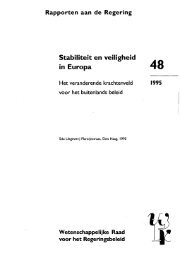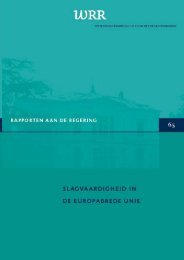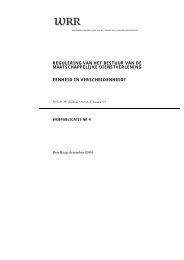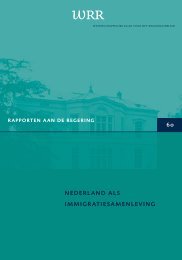Making Migration Work - Wetenschappelijke Raad voor het ...
Making Migration Work - Wetenschappelijke Raad voor het ...
Making Migration Work - Wetenschappelijke Raad voor het ...
- No tags were found...
You also want an ePaper? Increase the reach of your titles
YUMPU automatically turns print PDFs into web optimized ePapers that Google loves.
392 the global and european neighbourhoodmigration systems: trends, policy choices,governance challenges and a lookaheadDemetrios G. Papademetriou2.1 introductionInternational migration, a key by-product of globalisation, is already one ofthis century’s unavoidable issues. It is here, it is going to stay and it is going togrow larger. Moreover, it will only become more unavoidable as the centuryprogresses. Though few issues seem to be pricklier for high-income countries,good management of migration is possible. It is managed with varying degreesof success all across high-income countries. However, it requires somethingthat most countries are not particularly good at: the ability to think and actacross the whole of government. And when it comes to integration issues, italso requires the engagement of the whole of society, a rarity everywhere.This essay argues that the shrinking pool of workers and consumers, a quicklyageing population, and the resulting negative demographic momentum raisecrucial questions about the future of many of Europe’s high-income countries.Specifically, it is about who will do the work, who will pay the taxes needed tosupport the dense social infrastructures of European societies, and who willbuy the products and services that European firms produce? One option isgetting more out of the existing population by raising labour productivity andincreasing the labour force participation rates. Another option is to increasefertility. Part of the answer must also lie with increasing intra-eu mobilityand strategically selecting and attracting more workers and consumers fromEurope’s neighbourhood regions.2.2 key observationsThe economic importance of migration will continue to grow for both sendingand receiving countries. In the next decade or so, total migration towards highincomecountries will likely grow only modestly as these countries increasinglyfocus on selective migration, a further curtailing of family migration, and anever more systematic redirecting of asylum flows. The combined effect of sputteringeconomies and continuing fiscal woes, with their enormous overhangsof unemployed and underemployed workers (and especially the massive unem-


